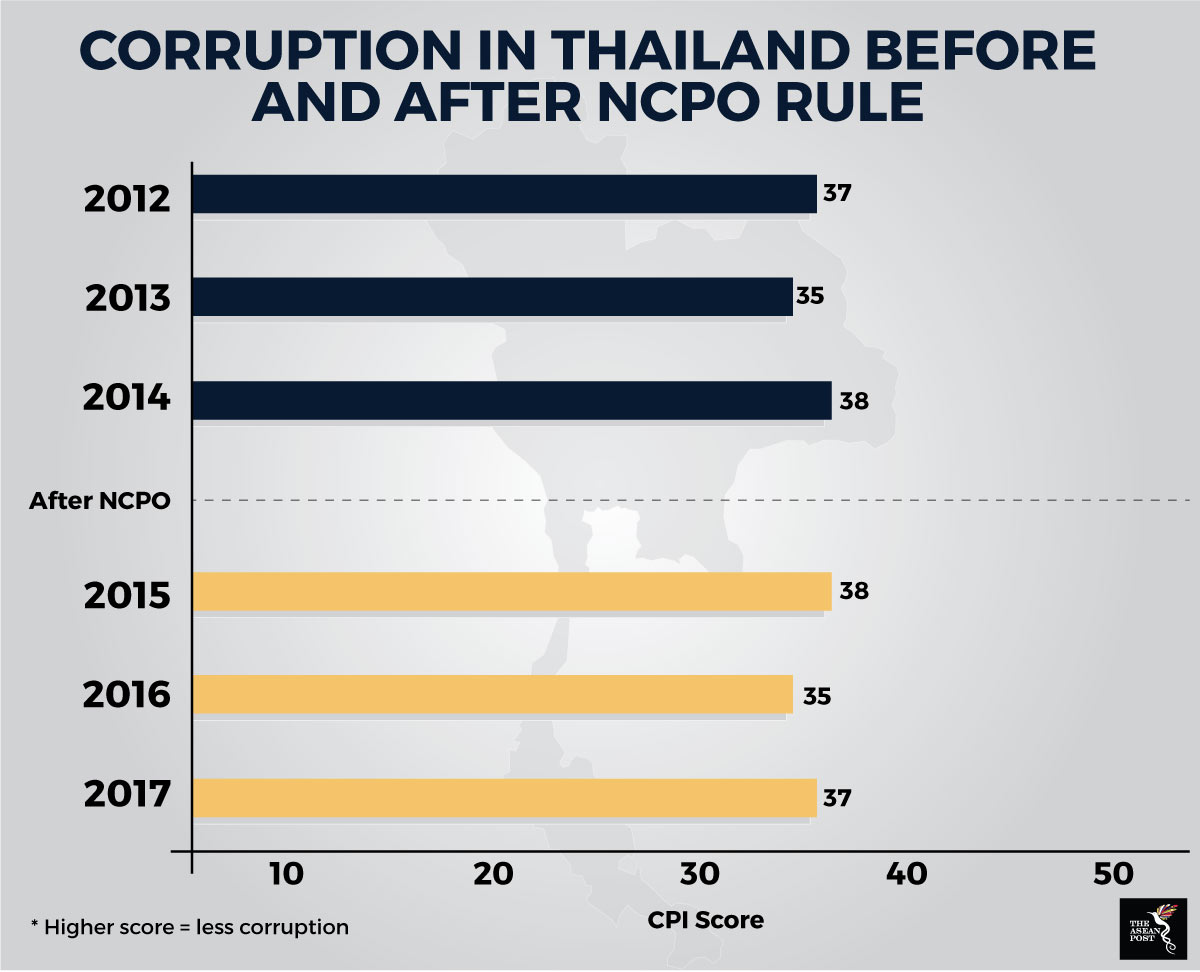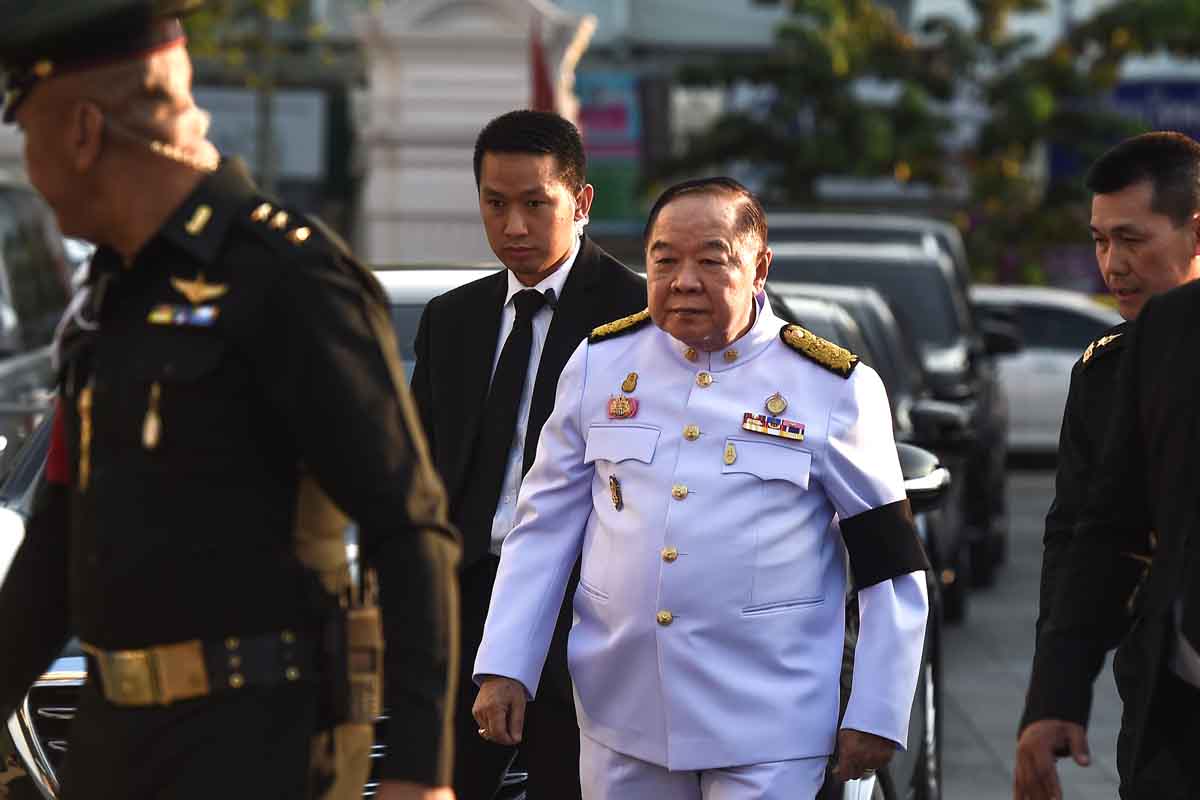Last week, the National Anti-Corruption Commission (NACC) in Thailand announced that its eight-person committee voted 5-3 to dismiss a probe into the luxury watch collection of the country’s number two junta leader, Prawit Wongsuwan.
Thailand’s anti-corruption agency claimed that there were "no grounds" for an investigation into the alleged scandal surrounding Prawit's penchant for pricey timepieces.
"This case has no grounds that General Prawit Wongsuwan had intended to hide the truth or had intended to hide the origins of such assets," said NACC deputy secretary-general, Worawit Sukboon.
Prawit was spotted in December 2017 wearing a luxury watch in a photo which inspired online sleuths to search for old photos of at least 22 watches collectively worth US$1.2 million on his wrist, including 11 Rolex, eight Patek Philippe and three Richard Milles timepieces.
The discovery raised questions about how a general on a public servant’s salary could afford items which were undeclared on his US$2.7 million list of assets upon taking office.
Perhaps another question that could be asked now is how the NACC’s decision to dismiss investigations will affect Prayut’s popularity especially with possibility of elections around the corner.
There is little doubt that Prayut is seeking to gain popularity among voters. He has already taken several measures towards this end including the unveiling of Thailand 4.0 in 2016 which seeks to free Thailand from the middle-income trap.
Prayut has also been seen as attempting to adopt a more open and friendlier persona while shedding his military image. A clear example of this was when he was seen in numerous photos with Japanese-pop girl group AKB48 when they toured Thailand in September. The publicity photos show a warmer side to Prayut as opposed to the image of a highly-disciplined military general that the world is more familiar with.
Rife with suspicion
As Thailand edges closer to its first election since 2014, Thais everywhere have apparently become more suspicious of Prayut and the junta.
In October, a rap song aimed at the junta gained strong traction, bringing in more than 21 million views on YouTube alone. The following month, the National Institute of Development Administration’s (NIDA) independent poll for the first time placed Prayut in second spot in a series of polls to ascertain who Thai’s would like to be their prime minister.
Later, in December, there was speculation that the National Council for Peace and Order (NCPO) had interfered with the Election Commission's (EC) work when reports surfaced of a proposal that ballots for the upcoming election only show the names and numbers of candidates without any party logos.
It seems more than likely that the same suspicions Thais had that the EC was not as independent as it ought to be may present themselves again, only this time with the NACC.

Source: Transparency International
Addressing corruption
When the military junta in Thailand, also known as the National Council for Peace and Order (NCPO), seized power on 22 May, 2014, one of the main reasons it gave for doing so was to address the high levels of corruption plaguing the country under then-Prime Minister Yingluck Shinawatra.
However, Transparency International’s Corruption Perception Index (CPI) seems to indicate that the military junta’s rule did not yield much in terms of eradicating corruption. According to the index – the higher the score, the lower the level of corruption – prior to the military coup, Thailand scored 37 out of 100 in 2012, 35 out of 100 in 2013, and 38 out of 100 in 2014. Under military rule, Thailand scored 38 out of 100 in 2015, 35 out of 100 in 2016, and 37 out of 100 in 2017.
The NACC has clearly stated its reasons for not pursuing investigations into Prawit’s luxury watch collection. According to the agency, investigations found that all the watches adorning Prawit's wrists belonged to his now-deceased friend, wealthy businessman Pattawat Suksriwong.
This, however, does not sit well with critics.
"All 22 watches, all borrowed from a friend - his friend must have a shop selling watches," said a commenter on an online website following the verdict.
After all that Prayut has done to gain favour among the people of Thailand, these new developments – if not a thorn in the side – must at least be of some discomfort to the prime minister who is actively seeking democratic legitimacy.
Related articles:
